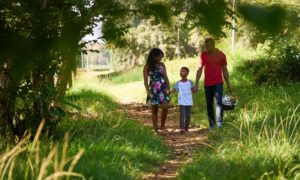 |
Jamey Wolff, Jane Nofer
Center for Spectrum Services
31 minutes. $49.95 for DVD and study guide.
Three articulate young people who have been diagnosed with Asperger Syndrome (AS) open this film with their definitions of their condition. “It’s a psychological condition that affects social skills,” says Annie, 13. Noah, 16, calls it a “disorder of social skills.” College freshman Jeffrey, 18, asserts that “it’s the way your brain is wired. You make up for the lack of social skills in talents.”
Jeffrey’s description reaches the heart of this film, which balances the challenges of AS with its positive aspects. Its young spokespersons are acutely aware of both sides of the coin. “Wallflower” Annie declares, “I’m not the life of the party, I’m the death of it.” She cries when recalling her feelings of worthlessness while being bullied, but brightens when recounting her total recall of movie scenes and her commitment as “a good citizen.”
All work hard to improve communications skills, such as making eye contact and responding to others. Labeling these difficulties as “the laser-eye effect” and “foot-in-mouth syndrome,” Jeffrey enjoys humor and deftness with language. Noah knows he acts “weird” watching his own hands move, but it’s an improvement on his childhood behavior of flapping his arms “like a hummingbird.” Self-help methods include Jeffrey’s timer to limit excessive hours online, and Noah’s handmade reminder sign: “Perfection and Procrastination Are the Enemy.”
Organized in eight chapters that can be accessed separately, the film also illuminates the talents that people with AS usually possess, including remarkable focus, memory skills and sensory strengths that support creative pursuits such as writing, music and acting.
A “Self-Disclosure and Self-Advocacy” section features the film’s only two adults. Annie’s mother discusses the consequences of revealing one’s diagnosis. Noah’s teacher, who coaches her students to be their own advocates, describes their range of responses, from keeping the diagnosis private to feeling proud of being “aspie.”
Will Annie become an actress, a chef or a marine photographer? Will Noah be an architect, a computer designer, or a math teacher? Jeffrey, the oldest of the three, favors video game design; his level of ease with himself demonstrates his success with coping strategies that should inspire hope in struggling younger viewers.
A discussion guide provides probing questions that personalize viewers’ involvement with the film, an appealing medium for AS youths, who are often skilled in visual learning. This production’s advice and encouragement can help them to thrive. Developed by Jamey Wolff and Dr. Jane Nofer, who direct a nonprofit center in New York’s Hudson Valley devoted to “brightening the lives of people with autism,” the film also targets teachers, therapists, families and peers of those with AS, enlightening anyone with an interest in the autism spectrum. (845) 336-2616, http://www.centerforspectrumservices.org.































